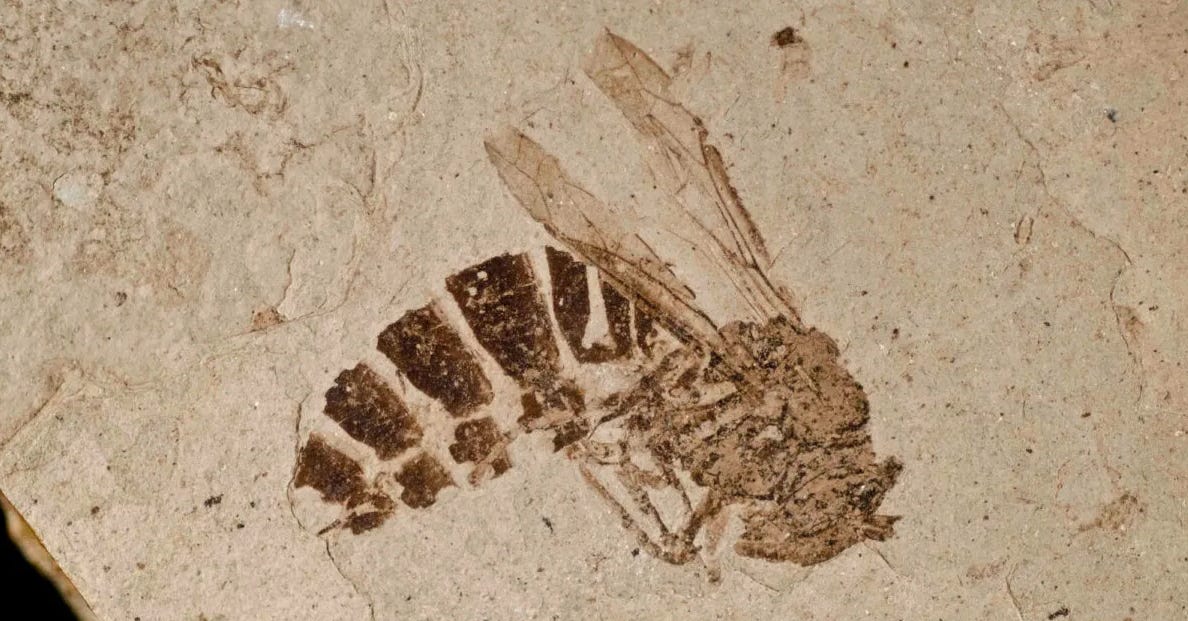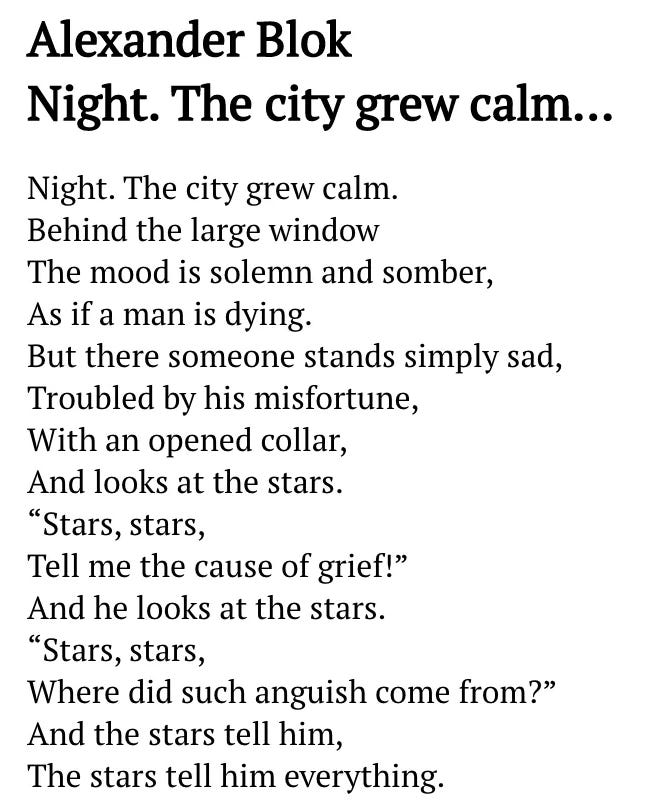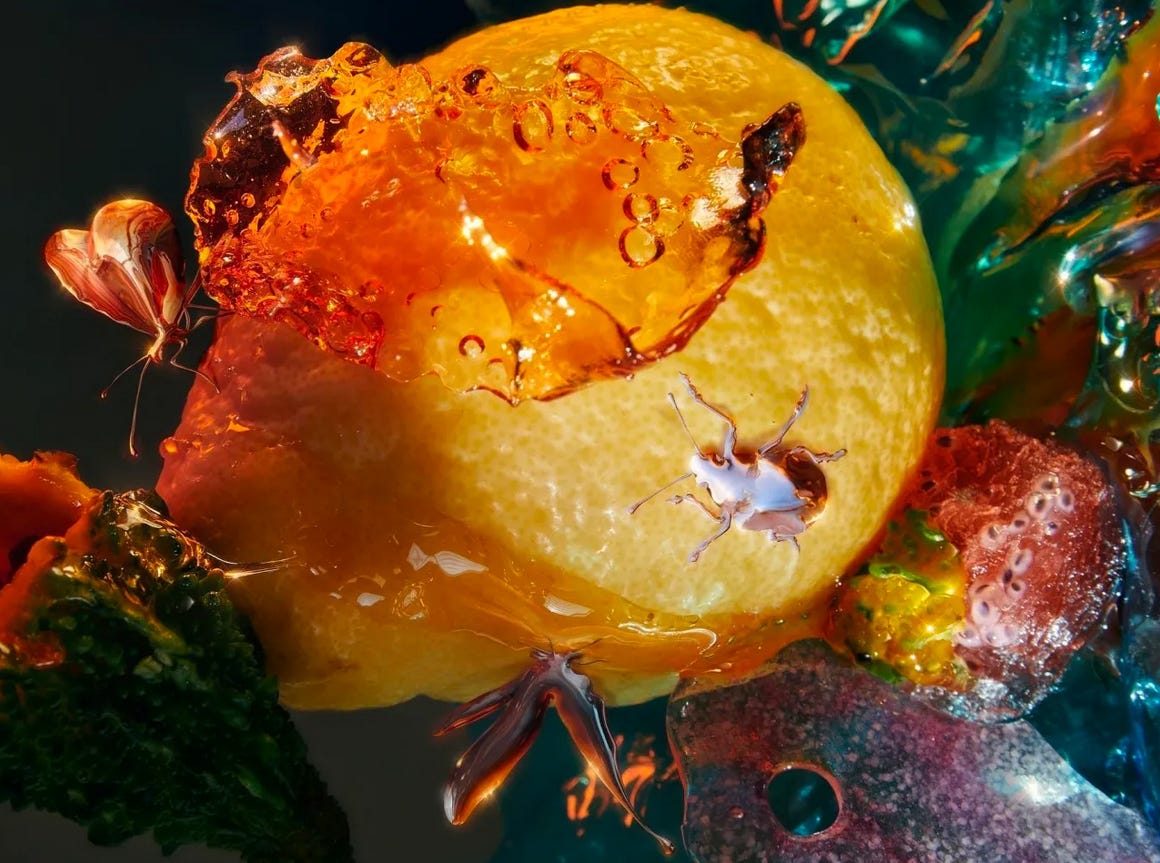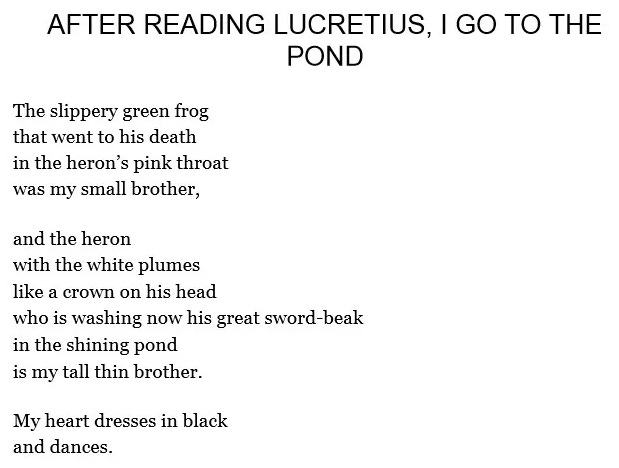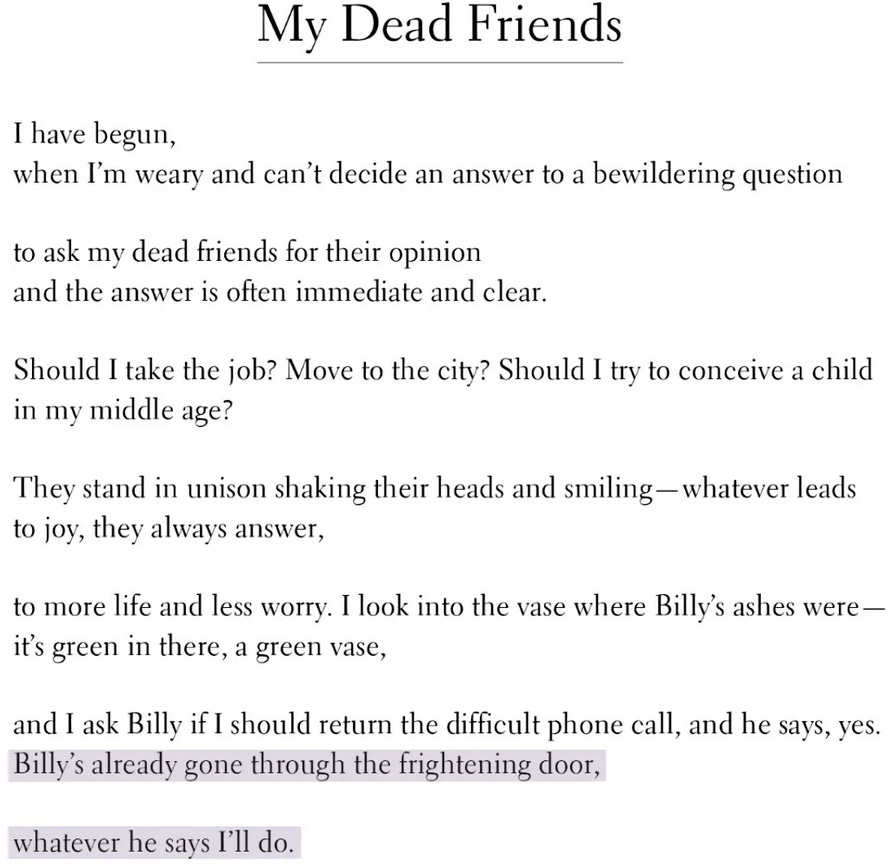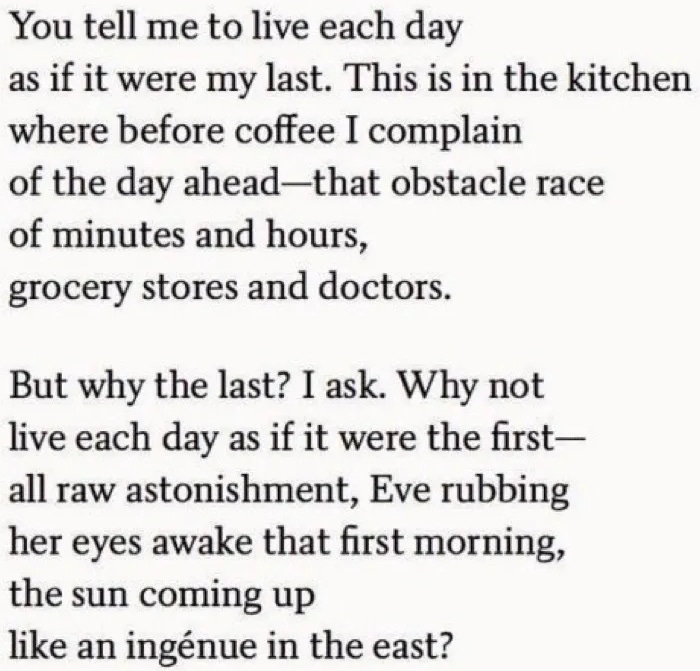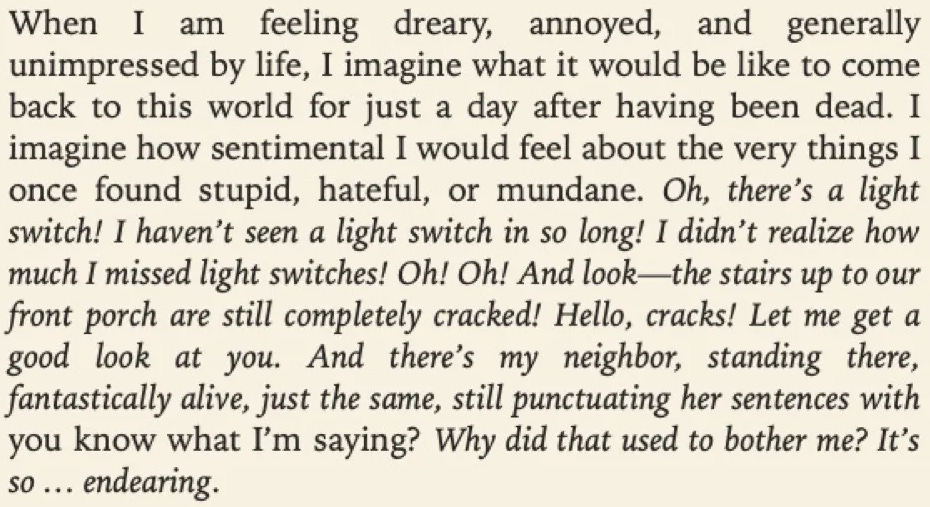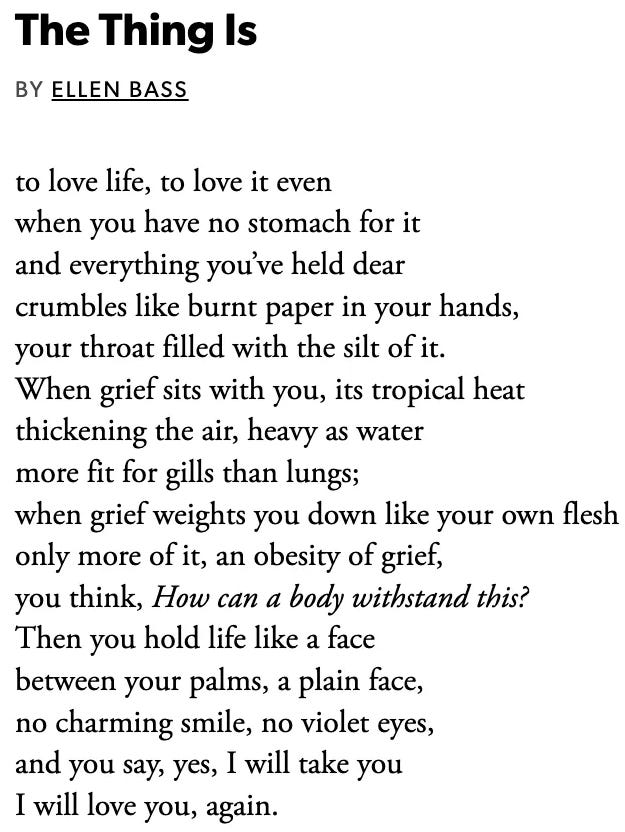Guest post: "you must take the olive, you must shoulder your Dead." by ars poetica
"destruction and death are fast, loud, and sudden. repair and mourning are slow, and quiet, and deliberate." - ars poetica
Occasionally on “when hope writes” I’ll publish guest posts by brilliant artists and writers. If you want to be a guest blogger on my Substack, please connect with me on Facebook, LinkedIn, or my website.
Today I’m sharing “you must take the olive, you must shoulder your Dead.” by the lovely, radiant ars poetica, which you can also read here. It’s a poignant and reflective essay on death and grief. It may not bring comfort regarding loss and mourning, but it may inspire you to live and love others deeply.
dear little voice,
geologists call them trace fossils: fossils without bodies; the signs and symbols left in stones and cave walls by the ‘impress of Life, rather than of Life itself.’ these are whispers of Life where the physical Life-maker has left, but the evidence of their living remains. where the absence of the Life-maker becomes only the reminder of Life itself; a continuous recollection and re-amazement made permanent in a stone.
in a stone, a vanishing of the present becomes a possibility for eternity. in a stone, a loss becomes a witnessing to enduring. in a stone, an absence becomes a presence. it is only when we trace the lost shape and the fragment it has left behind that we are reminded of its importance.
little voice, we all carry these trace fossils inside of us: the lingering of lost and the missed; the collected letters and movie-stubs, the empty shoes by the door, a sudden sun-starched scent illuminated in a sock drawer, the memory of a quiet hand in a quiet lap that clings to dreams: these are all trace fossils, too. we carry their forests on our backs, their fields in our chests, and perhaps we have not yet fit their Oceans inside of our mouths, but we fit their sounds: that wild hush of waves: their whisper, their voice.
it is a voice that circles us with the obstinate rhythm of the largest Sea to emerge in a blue pang of wanting. and we believe in the orbit of this Sea: in its power to reveal presence within absence in a sudden rinse of remembrance.
little voice, it so often happens that life’s truest tragedies occur utterly inartistically, with no great synergy or symbolism, with no grand flight of rain or gesture from Heaven. instead, they hurt us with their crude bluntness, their inarticulate violence, their absolute futility, and their absurd lack of style or meaning.
destruction and death are fast, loud, and sudden. repair and mourning are slow, and quiet, and deliberate.
little voice, in grief despair can feel Immensely Logical. you despair because despair is a correct response to awfulness. you despair because it is straightforward. you despair because the beloved body is gone but the trace fossil remains.
but little voice: despair is simple. whereas Life: Life is myriad. mere despair will not suffice in response to Life, because a mere Anything does not suffice in response to Life. Life is myriad. This is because you are myriad because Life is myriad because Grief is myriad because Life is myriad because Love is myriad because Love is a divine thing. It floats in the night through an open window in a violin’s bow to kiss you on the nose like Spring, and you have waited so long- yes, you have waited so long- and now the sun is washing the world in yellow, now the seeds sprout green in the dirt, now the trees are breathless with beating buds- and it was all so worth it, yes, and so the soft body of a swallow makes its home in your Heart, and so It is beautiful, and so It is beautiful, and so It will go, and so It will go, and so It is beautiful because It will go.
Unknown artist, a fossil is created.
Love is a Divine thing because if It enters a human Heart, It will break it. this is divine because, ultimately, only a God can undo Her own Creation:
little voice, it would be easy to write to you and tell you that your grief is only a measure of your Love: it is all the Love you have left unspent, it is the seeds you did not plant in that Spring, it is the knowing that there will not be a Spring like the one that moved through your window, or a Swallow like the one that moved in your Heart, again. and this would be true. but you would still be clutching those gathered seeds.
the perpetual unearther of trace-fossils and writer John Berger recalls in his wonderful text Confabulations:
“A week [after Sven’s funeral], I’m cooking fish on a wood fire outside and my son, Yves, brings me a glass of wine to drink and holds a bowl of olives. It’s getting dark and my eyes are sore from the smoke, so I feel for a couple with my fingers without looking, and pop one into my mouth. As I spit out the stone and try to define the flavour–sharp, bitter-black, Greek–a thought crosses my mind: From now on I taste olives for Sven too.”
- John Berger, ‘Et in Arcadia Ego,’ from Confabulations.
perhaps, little voice, this is what the ancient Roman poet and philosopher Lucretius meant when he spoke of our bodies’ eventual softenings and endings:
“The atoms in it must be used over and over again; thus the death of one thing becomes necessary for the birth of another.”
- Lucretius, De Rerum Natura.
these are our trace fossils. yes, the bodies of our Dead eventually nourish of the soil, the soil, the garden, the garden, the insect, the insect, the fawn, the fawn, the lion, and the lion, us- but us, the Living: we shoulder our Dead, so that our Dead may feed us. and we feed our Dead in return when we feed ourselves: an olive, once something unnoticed in the dark, suddenly becomes sharp, bitter-black and Greek. when we are eating for our Dead, we are feeding ourselves.
little voice, it is as if as if we were all put here to recall our own ending. to wander out into a dark night, a sacred smoke at our eyes, to stare into the fire’s ancient hollow, to know that we must accept the reality we are given- that life will strike us, and then suddenly go- and that someday we will be released, “somewhere [we] have never travelled, gladly beyond any experience.”
for now, little voice: now, we taste olives for our missed and for our lost. this is how we shoulder the Dead in our mouths: as an Ocean. as a whisper. as a guide:
these are our trace fossils:
the Greeks, little voice, had a word for True Happiness: eudaimonia.
etymologically, it can be broken down into two words: the Greek eu- meaning good- and daimon- meaning demon.
this is your good demon, little voice: Death. a recognition of the urgency of living. of the urgency for reaching for the olive. of the urgency of being alive to the olive when you it is in your hands.
little voice, maybe our lost ones go on only to good things: snarls of tangled honeysuckle, doves, a distant harping, stars in the eveningtime, ancient fireflies, warm hearths, and buttered toast.
but certainly, little voice, what you have lost in a beloved’s body, you have found in its trace; in a responsibility. a responsibility to be a little voice on which nothing is lost, as one day it all will be, as one day you will be too:
there is a story, little voice, and it is a strange and lovely one. the ancient words say that, while the soldiers were preparing the hemlock for his execution, Socrates was learning how to play a new tune on the flute:
“What will be the use of that?” he was asked by the soldiers.
he answered them: “To know this tune before dying.”
hold your Love, little voice. tell your Love how beautiful It is, how precious It is, how rare, how utterly necessary, how It should devastate you, become tangled In your hair, work Itself through your fingers, erupt at your eyes, tell your Love to meet you at your tongue, at your teeth, to find a home in your words, tell your Love it must one day leave so that you may move into the space where It stood, so that what you love may seem like air: air you are always moving into for the very first time.
love,
ars poetica.
If you love this essay, I also highly recommend ars poetica’s other penetrating, captivating essay “here is what the stars smell like.” It’s the first post I read, and I was absolutely dazzled.
Please leave a comment of appreciation for ars poetica’s thought-provoking writing and share the post widely with others.
Do be sure to subscribe to ars poetica’s wonderful Substack for more philosophical, poetic goodness.
Thank you!






